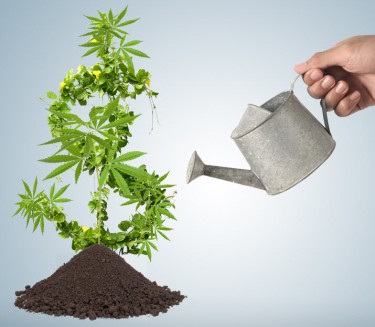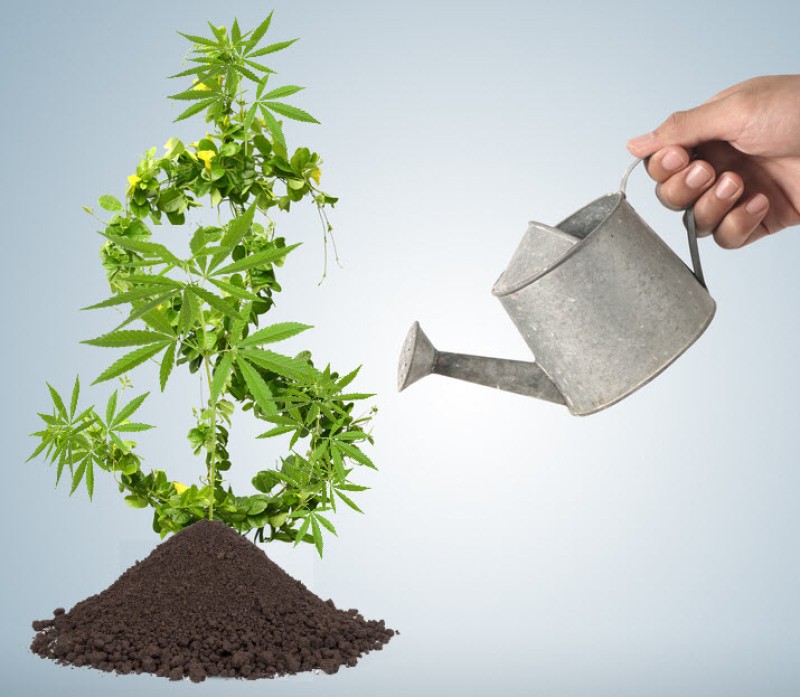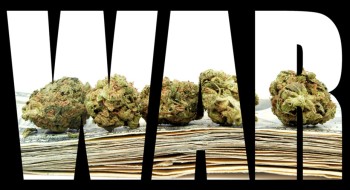
Colorado's cannabis industry has once again broken its own revenue records. Cannabis retail sales tax, retail cannabis excise tax, and state sales tax generated $423 million in revenue in 2021.
From its inception in 2014, the Colorado recreational cannabis industry has risen steadily to be what it is today. Each year, it records new amounts of generated revenues, such as updated sales data in tax and fee revenues.
Two weeks ago, the state's Revenue Department revealed a new record that has been attained with the state's total yearly cannabis sales. The agency made this announcement on its website and across all of its social media platforms. The statement says that Colorado has crossed the $2 billion mark in tax and fee revenues. The state has also sold off about $12 billion in cannabis sales from the start of operations to date. The major record broken was the collection of $423 million in revenue from the total sales made throughout the year. In 2020, this total amount generated was $387 million (which was also a new record alert at the time).
Breakdown of Sales
The Colorado Department of Revenue (DoR) published a detailed press release that revealed that since February 2014, the state had gathered at least $2,019,005 in tax and fee revenue. In December 2021 alone, it reached $30 608 000, while a total of $423 486 053 was generated between January and December 2021.
The data published for November sales showed that $158,460,549 was generated.
The published figures show a gradual decrease in cannabis sales and prices in the latter months of the year, starting in October. Both sales and prices dropped below the regular rates. For instance, Westword reported that the cost of cannabis flowers per pound dropped by 27.5% in October 2022—from $1,300 to $945. whereas the average market rate for the same period in 2020 put the price per pound of the same smokeable products at $1,720. Denver dispensaries made up a larger portion of the sales for the state.
The above figures are obtained from the state sales tax. According to Colorado cannabis law, a 15% rate excise tax and a 15% wholesale excise tax must be removed from monthly marijuana sales. For now, the adult-use market is not affected by the general sales tax laws.
The state's total tax revenue is $2 billion, the third-highest in the country. Meanwhile, the state of California and Washington have generated $3.1 billion and $3.3 billion, respectively, in tax revenues over the years. California has the highest sales tax, which is over 40%, while Washington's is up to 39%.
We expect the official sales figures for the annual cannabis sales data for both the recreational and medical sectors will be released before the end of the first quarter.
Distribution of Earned Revenue
The Colorado state government is entitled to 90% of the total marijuana tax revenue generated each month and year. At the same time, the local government is allocated the remaining 10%. The state revenue is further split into different funds, including the state's general funds, the marijuana tax cash fund, and the state public school fund.
The Building Excellent Schools Today (BEST) fund is one of the proposed development projects slated to be funded by the state's wholesale tax revenue. Reports state that $40 million has been earmarked for the project's first phase, which involves constructing new schools in different regions of the state.
Colorado's Adult-use Cannabis Industry
Karen O'Keefe, the Director of Marijuana Policy Projects, confirmed that the state's cannabis industry is growing and a consistent inflow of funds for various projects in the state. She referred to the funds as having a multiplier effect on the economy. This is described as having more than the invested capital at hand, where the state government and entrepreneurs have their investments in the cannabis dispensaries, the tax revenues, and jobs provided. Consumers with money in their wallets come into the stores to spend the money again in return for cannabis products.
O'Keefe explained that economists look at this situation as a long-term investment, where one dollar in the stores is more or less than two or three dollars. She also added that Colorado's recreational cannabis industry had created over 35,000 jobs and at least 1,000 new businesses.
She said that Colorado is actively reinvesting a significant portion of the realized revenues back into the community. Areas that have been disadvantaged by the failed war on drugs in the state are favored over others. O'keefe claims that this way, more people will be interested in seeking or creating employment opportunities in the industry. Places that have borne the brunt of marijuana prohibitions and disproportionate arrests will be improved by better schools, cheaper tuition, and newer businesses opening to employ local residents.
Colorado has one of the best cannabis industries in the world. Year in and year out, the industry looks for more innovative ways to improve itself and yield more profit for the state's economic growth.
In 2021, over 1,300 nonviolent cannabis offenders charged with possession of fewer than two ounces were pardoned, and several others had their records expunged or cleared of their cannabis-related crimes. Governor Jared Polis signed an executive order to this effect.
Psychedelic Decriminalization in Colorado?
Reports are ramping up across the state about two potential ballot measures proposing the decriminalization of psychedelics in the state. One of the bills focuses on only psilocybin, while the other seeks to legalize different psychedelic substances like DMT, mescaline, psilocin, psilocybin, and ibogaine. Whether or not this will be passed in the state legislature will be revealed in the coming months.
Final Note
The recent marijuana sales report for Colorado's recreational market took into account the total sales made by each county in the state. The published report reveals only the state tax and fee revenues entered into the state's accounting system throughout the year.
The Department of Revenue posted that the official data will be published before March 2022. Other relevant information and reports can be found on the various CDOR Office of Research and Analysis (ORA) websites. The state's medical cannabis industry is also thriving!
COLORADO CANNABIS, READ MORE...
5 COOL DISPENSARIES IN COLORADO, WHAT IS YOUR FAVORITE?








